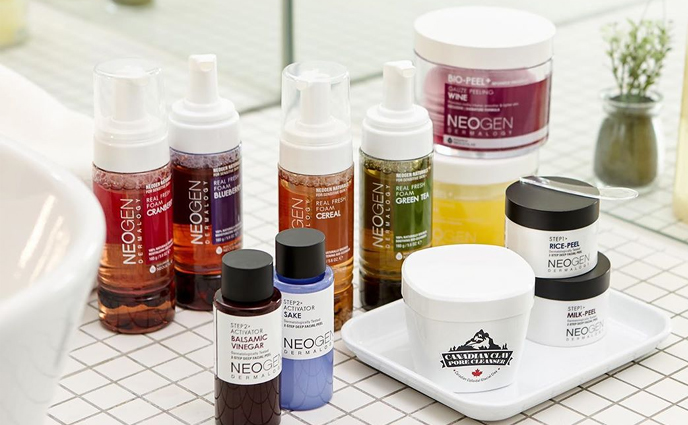"By your 40s hormonal changes are apparent and your skin may not look as radiant as it did in your 20s and 30s," says Dr. Green. "It's time to add more hydrating lotions and potions to your skincare." She suggests swapping out your cleanser for a cleansing balm to hydrate your skin as it cleanses and making sure to use a toner that will replenish lost moisture, specifically ones made with aloe.
Exfoliation is also a key step at this age. "Your skin needs all the help it can get to stimulate cell turnover and this will help maintain a healthy complexion," says Dr. Green. You'll also want to step up your treatment product in terms of potency. "Your treatment products in this phase should be lightweight and able to penetrate deeper into your skin to repair and replenish," says Dr. Green. "Look for products containing antioxidants and peptides to stimulate collagen regeneration."
Image via Steve Granitz/WireImage/Getty
In your 50s, your skin drastically changes. "Menopause causes many women to lose fat, which causes skin's elasticity to drop," says Dr. Gross. "This combined with dryness caused by hormonal changes leads to deepened lines and sagging." He suggests looking for moisturizers that contain hyaluronic acid as these work to bring water from the atmosphere into your skin making it look plumper and firmer. "This age group is also prone to redness and irritation, so it's important to look for products that include green tea extract."
But it's not just about your face! Hands start to age at this stage as well. "Fraxel can help reduce pigmentation such as sunspots and it also helps even out skin tone," says Dr. Jarrod Frank. He adds that while at-home peels and retinoids can work to reduce pigmentation and freshen up the skin, they don't penetrate deep enough into the skin where the damage is to make a significant difference in the long run. Instead, he suggests in-office treatments like Restylane.
Image via Daniele Venturelli/WireImage/Getty






